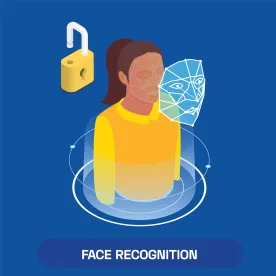The Illinois Biometric Information Privacy Act (BIPA) has spawned hundreds of class action lawsuits and a raft of unresolved issues. A core issue from a litigation perspective—as well as for companies bracing for potential lawsuits—is one of “standing,” and in particular, what BIPA claims can be brought by plaintiffs in what venues.
As we discussed in an earlier post, in a case from last year (Bryant v. Compass Group USA, Inc.), the Seventh Circuit ruled plaintiffs have federal standing for claims alleging that a company collected biometric information without written consent (i.e., violated Section 15(b) of BIPA). BIPA has other requirements, however. Namely, that companies publicly disclose their biometric retention policy, and retain biometric information in accordance with such policy (i.e., violations of Section 15(a) of BIPA). While the Bryant case found there was standing for violations of Section 15(b), the court found at the same time that a violation of the disclosure requirement (Section 15(a)) does not create standing. However, a few months later in Fox v. Dakkota Integrated Systems, the Seventh Circuit ruled that a violation of the retention requirement under Section 15(a) does create standing.
Companies who are sued under BIPA for their biometric practices often find it desirable to defend themselves in federal court, as under the Federal Rules of Civil Procedure it can be harder to have a class certified than in state court. On the other hand, plaintiffs increasingly favor splitting up BIPA class actions between state and federal court, likely because the outcomes in state court may be more favorable, and having litigation running in two venues can have advantages for them.
What does the Fox decision mean in this environment? First, plaintiffs are starting to plead only that a company has failed to disclose its biometric retention policy. That way, if the defendant—who wishes to defend itself in federal court—tries to argue that BIPA cases should be heard in federal court, not state court, the plaintiffs can argue the federal court lacks jurisdiction. So far, this strategy has yielded mixed results for BIPA plaintiffs.
Putting It Into Practice: Companies that collect biometric information in Illinois should keep in mind that plaintiffs’ counsel are actively working to have biometric policy violation allegations heard exclusively in state court, not always a preferred venue. This is a reminder that by having a written policy that specifies a retention and destruction schedule for individuals’ biometric information, and making that policy available to those from whom it collects biometric information, companies may be able to avoid these standing battles.





 />i
/>i
